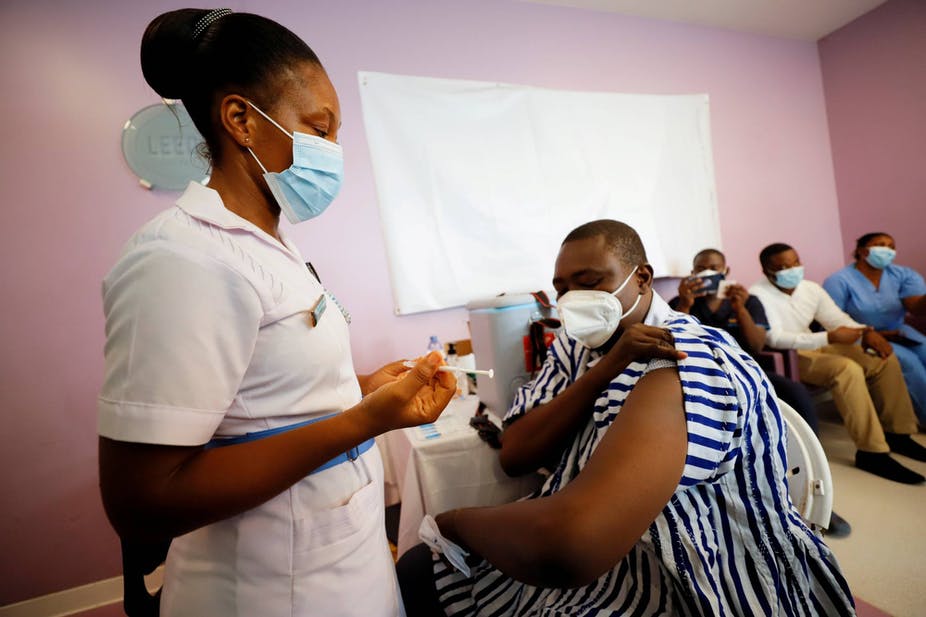The Ghana Health Service (GHS) is worried about the Ghanaian public’s unwillingness to be vaccinated against COVID-19 despite the availability of vaccines.
The problem of vaccine hesitancy is pervasive in West Africa.
As of 13 July 2021, Our World in Data report that only 2.95% of the African population had received one dose of a COVID-19 vaccine. In Ghana, this figure is just 2.8%.
Deputy Director of Public Health at the Bono Regional Directorate of GHS, Dr Prince Quarshie, on Thursday, November 18, 2021, expressed worry that although the region has received enough COVID-19 vaccines people were not coming forward to be vaccinated.
He said although the region had not recorded new infections in the last two weeks, it was prudent for the masses to take the vaccination.
He said building immunity against the viral disease remained the surest way to protect oneself from contracting the disease.
READ ALSO: FDA approves Pfizer vaccine for 15 to 17-year-olds
Dr Quashie told state-owned Ghana News Agency in Sunyani that the current region’s case count stood at 2,122, without any active case in homes or health facilities, adding the COVID-19 pandemic had killed 89 people in the region so far.
He regretted that only 20 per cent of the more than 700,000 targeted population had taken a single dose of the vaccine, while 2.4 per cent had finished taking their course.
Dr Quarshie expressed concern about people’s disregard of the COVID-19 health safety protocols in the region and reminded the public of the need for them to continue washing their hands with soap under running water, use alcohol-based hand sanitisers, wear nose masks and observe social distancing in public places.
He urged the public to disregard the unfounded theories and myths surrounding the COVID-19 vaccines and be available for the vaccination to protect themselves and those around them.
“We have received doses of the AstraZeneca, as well as the Johnson and Johnson and Modena vaccines and we are pleading with the people in the region to come for the vaccination to prevent the possible spread of the disease,” Dr Quarshie stated.
Misinformation about the vaccines and the disease remain one of the key drivers of vaccine hesitancy.





